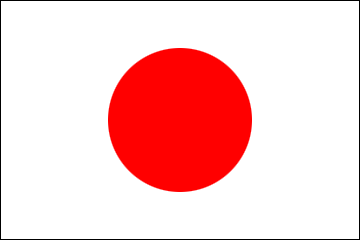Announcement of the Basic Policy on Handling of the ALPS Treated Water at the Tokyo Electric Power Company Holdings’ Fukushima Daiichi Nuclear Power Station
2021/4/22
Announcement of the Basic Policy on Handling of the ALPS Treated Water at the Tokyo Electric Power Company Holdings’ Fukushima Daiichi Nuclear Power Station
The Government of Japan announced “the Basic Policy on handling of the Advanced Liquid Processing System (ALPS) treated water at Tokyo Electric Power Company Holdings (TEPCO)’s Fukushima Daiichi Nuclear Power Station (NPS)” on 13 April, 2021. According to the Policy and subject to receiving necessary approval from the independent Nuclear Regulatory Authority (NRA), the ALPS treated water at Fukushima Daiichi NPS will be discharged into the sea by TEPCO. The actual discharge is envisaged to be conducted approximately after two years.
Three points of the Basic Policy are as follows, and we will continue to disclose the related information in a timely manner.
1. Points of the Basic Policy
(1) Safety (See details in P2-3 of ‘Concept of “the Basic Policy”’)
| Fully taking into account the impact on the environment as well as health and safety of the people, the GOJ will take measures based on international standards and international practice. |
- The discharge of the ALPS treated water into the sea will be conducted after purification/repurification and sufficient dilution, to meet the regulatory standards, which are based on international standards. The GOJ will never approve discharge unless it meets regulatory standards.
- Radionuclides other than tritium will be purified/repurified to meet regulatory standards which are set based on international standards. Then, by diluting at least more than 100 times, concentration of tritium will be less than 1/40 of the regulatory standard, which is around 1/7 of the WHO Guidelines for the quality value of drinking water. Through these measures, the health and safety of the people as well as the environment will be protected.
(2) Transparency and Accountability (See details in P4 of ‘Concept of “the Basic Policy”’)
| The GOJ has explained the status of TEPCO’s Fukushima Daiichi NPS and its consideration on handling of the ALPS treated water to the international community in a transparent manner based on scientific evidence. The GOJ will continue such efforts. |
- The GOJ has continuously explained the status of Fukushima Daiichi NPS and its consideration on handling of the ALPS treated water to the international community by providing detailed information to the International Atomic Energy Agency (IAEA), holding briefing sessions and sharing monthly reports with the diplomatic missions in Tokyo, and through other means. The GOJ will continue such efforts.
- The GOJ has received IAEA review missions 16 times since the accident at Fukushima Daiichi NPS, and disclosed the findings of the missions. The GOJ will continue such efforts.
(3) Objectivity –In coordination with international standards
| IAEA acknowledges the discharge into the sea as technically feasible and in line with international practice. |
- Japan’s regulatory standards are based on international standards, namely the recommendations of the International Commission on Radiological Protection (ICRP) and the safety standards of IAEA.
- The GOJ has received IAEA missions to review Japan’s efforts toward the decommissioning of Fukushima Daiichi NPS and its monitoring methods. The GOJ will continue such engagement with IAEA.
2. Materials
- Concept of “the Basic Policy”
- The Basic Policy on handling of the ALPS treated water (the text)
- Japanese Food Products are Safe and Reliable
3. See also
- Ministry of Economy, Trade and Industry (METI)
- Ministry of Agriculture, Forestry and Fisheries (MAFF)
